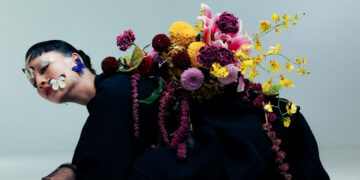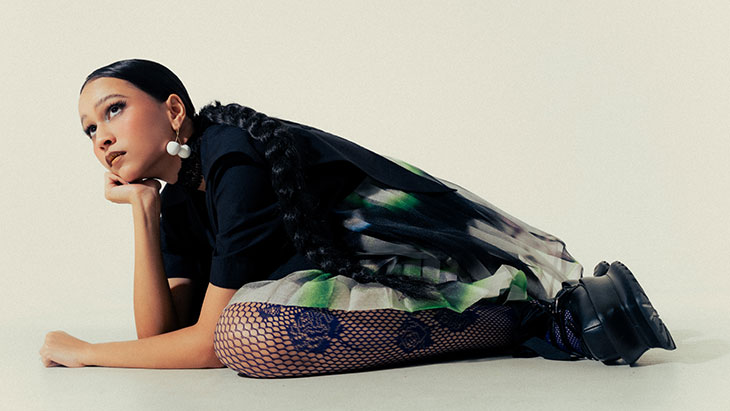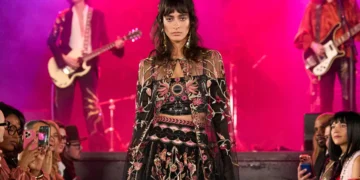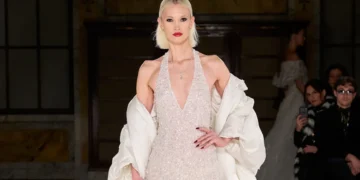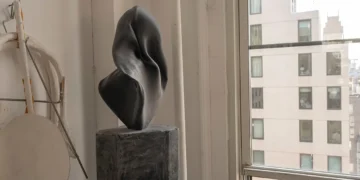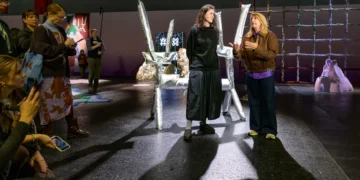
From her early days as a model to her current standing as a rising star in Indonesian cinema, Lutesha’s career has been nothing short of dynamic. At just 19, she got her start in the spotlight through a magazine modeling competition, which paved the way for her to explore various creative roles. Her big break in acting came in 2017 with her role as Suki in My Generation, earning her a nomination for Best New Actress at the Indonesian Maya Awards. Despite her growing success on screen, Lutesha continued to channel her creativity as a graphic designer, showcasing her multifaceted talents.
INTERVIEWS
In 2022, Lutesha expanded her reach to international audiences, co-starring in the Netflix feature The Big 4 and Disney+’s Virgin the Series. Her performances have shown her ability to tackle a variety of genres and characters, reflecting her growth and commitment to her craft. In 2023, she continued to make an impact with roles in 13 Bombs in Jakarta and Ali Topan. Her work has been noted for its depth and authenticity, demonstrating her evolving range as an actress. Lutesha’s ability to bring complex characters to life on screen is establishing her as a significant talent in the entertainment industry.

In this exclusive interview with Editor Anastasija Pavic for DSCENE Magazine, Lutesha discusses her journey from modeling to acting and how her passion for storytelling began with a love for movies and comic books. She explains her thoughtful approach to choosing roles, the importance of managing her emotions as an introvert, and reflects on her evolving view of success, focusing on making a meaningful impact through her work.
What sparked your initial passion for storytelling, whether through acting, modeling, or design, and how has that passion evolved over the years?
From a young age, I was immersed in different forms of storytelling, like movies, comic books, fiction novels, and even cartoon series. I wasn’t a child who was good at expressing my thoughts verbally, so I was very grateful for the many media that could provide an outlet for my feelings. My interest started with drawing, watching films every day, then trying out photography and graphic design, and now I’ve professionally ventured into modeling and acting. My curiosity to explore various media and forms of art has never stopped because I also pay attention to trends, subcultures, and phenomena that constantly evolve over time.


What criteria do you consider most important when selecting a new project or role to take on?
As an introvert, does the emotional intensity of acting ever feel overwhelming, and how do you cope with that in your work?
Yes, as an introvert who rarely expresses emotions openly, I often feel overwhelmed by the challenges and emotional range I need to deliver due to the script and role requirements. There are many emotions I’ve only experienced when playing certain characters, and this is a new experience for me. The way to cope with it is to get to know myself better. The more we understand ourselves and manage our emotions, the easier it is to handle overwhelming situations.
“My interest started with drawing, watching films every day, then trying out photography and graphic design, and now I’ve professionally ventured into modeling and acting. My curiosity to explore various media and forms of art has never stopped because I also pay attention to trends, subcultures, and phenomena that constantly evolve over time.”
In 13 Bombs in Jakarta, critics noted your natural charisma. How do you balance staying true to your personality while adapting to the demands of each role?
Some people say that whenever I play a role, I always bring out a distinctive side of myself. I’m not someone who can easily articulate or explain my craft. I rely on my intuition as an actor. While I know some acting theories, trying to apply them often makes me overthink and restricts my performance. That’s why I trust my gut feeling when acting. My approach is to make the character as human and natural as possible. I add a little twist but always ensure I don’t lose the character’s humanity.

Your role in The Big 4 on Netflix introduced you to a global audience. How has the experience of working on an international platform influenced your career?
To this day, I’m more recognized as Alpha than as myself. I’m very grateful to have been trusted to be involved in such a large project with an impact that reaches the international level. It’s a great feeling to know that our hard work is being watched not only in Indonesia but also abroad. I have high hopes that because of this film, I’ll have the opportunity to work with foreign filmmakers and try creating works outside of Indonesia. Getting positive responses from outside of Indonesia gives hope that Indonesian films can indeed be accepted and compete internationally.
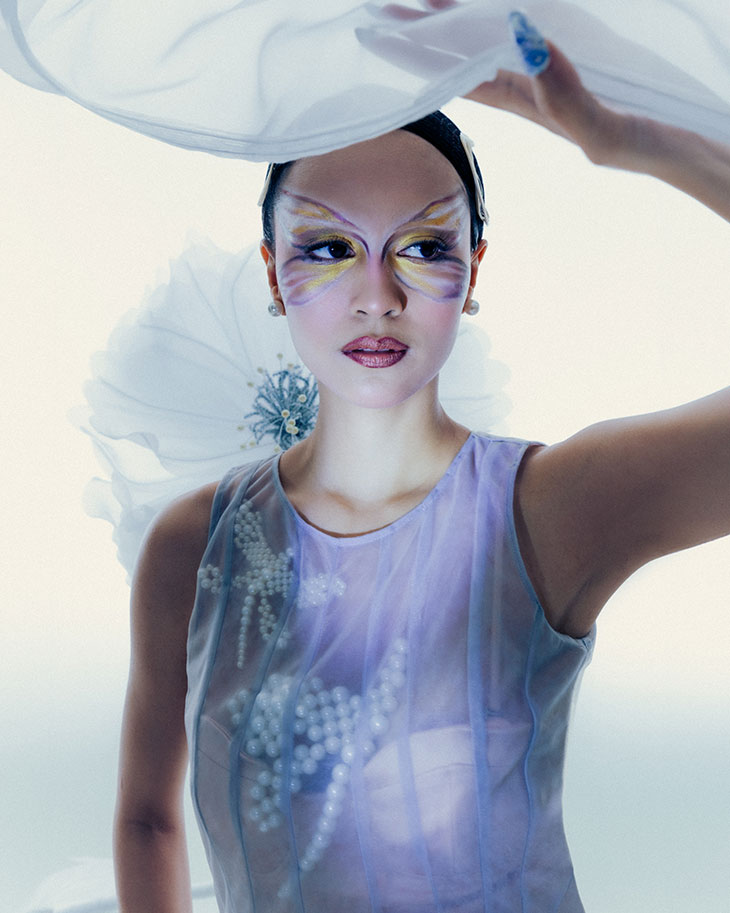
Having played a wide range of characters, is there a specific role or genre you’re still eager to explore?
There are many, including musicals. I listen to music religiously, but I’m not good at singing or playing instruments. I also want to learn more about dancing. I think both of these challenges are not easy.
“Many people with outstanding talent and skills miss out on opportunities because the creative and entertainment industries are still dominated by these unrealistic standards. Imagine how much talent is wasted because we continue to judge individuals based on their shape, size, and appearance.”
Do you and your partner, artist Cahyo Arswandaru, find that you influence each other’s creative processes, and if so, how?
No, but we support each other and try to understand, not in a creative way. I always ask for his opinion about scripts, and he does the same.

Are there any particular causes or issues you’re passionate about that you wish to use your platform to highlight?
I just hope that unrealistic beauty standards in all industries can change. Many people with outstanding talent and skills miss out on opportunities because the creative and entertainment industries are still dominated by these unrealistic standards. Imagine how much talent is wasted because we continue to judge individuals based on their shape, size, and appearance.
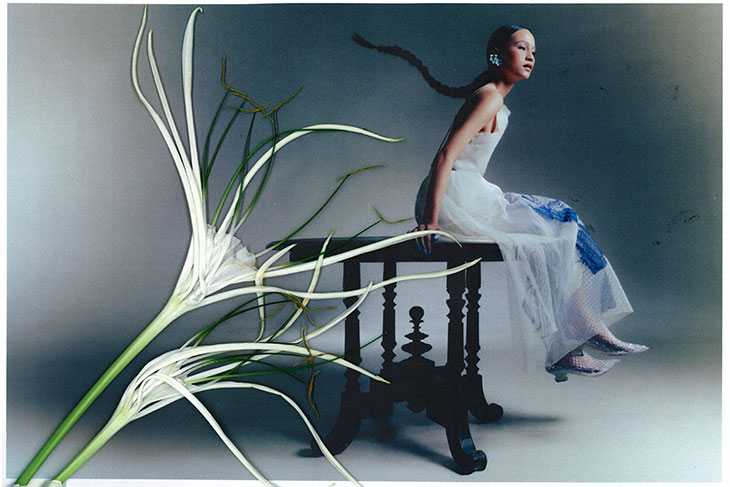
How has your perception of success changed since you first started your career?
